Arsenal Pulp Press (arsenalpulp.com) just re-released Macho Sluts, the seminal collection of lesbian erotica by Pat Califia. When it first came out, back in 1988, it was a pivotal book that helped create the very communities it described-the previously invisible lesbian leather and S/M populations-communities in which Califia was a central player.
Macho Sluts is also notable for the role it played in the lesbian sex wars; and a Canadian censorship case. Anti-pornography feminists, who viewed all pornography-especially those entailing S/M fantasies-as violence against women, condemned the book; and Canadian Customs officials confiscated Macho Sluts at the border, giving it a central role in the ensuing legal battle between that agency and Little Sister's, the pioneering lesbian and gay bookstore in Vancouver, Canada.
The new edition of Macho Sluts includes an introduction by the author-now known as Patrick-about his transition from female-to-male and why lesbians should consider reading pornographic work by a man. He raises a question I've been pondering recently: why should lesbians read authors who no longer identify as lesbians?
Of course this question is central to my own work: I write for SheWired and co-author the lesbian-focused Blind Eye mystery series. As one of the founders of the now-defunct lesbian magazine, Girlfriends, I also remember how Califia was taken to task when he came out as FTM in the advice column he penned for that publication. Many readers were incredibly upset and there was an element of personal rejection and betrayal they expressed at his announcement.
Just like when a dyke goes straight, many lesbians seem to feel personally wounded when one of their own renounces the female sex for trans male-hood. The rejection is especially difficult when a high profile lesbian becomes a man-or marries one-and those making such transitions risk having their entire legacy discounted.
"I felt as if I were pouring gasoline on a lifetime of work and lighting it on fire," Califia acknowledges, "I have grieved the loss of my dyke identity more bitterly than any of my readers or friends. But feminism is no cure for transsexuality."
more on next page...
\\\
(continued)
So are the words Califia wrote when he was lesbian-identified now suspect? Was he a wolf in sheep's clothing, sneaking his male-centric ideas into an unsuspecting lesbian consciousness?
Patrick Califia
Think about your own experience for a moment. Was your life a lie before you came out as lesbian? Or had the truth not yet surfaced? Can we be held accountable for truths we've hidden from ourselves?
I don't know. I have more questions than answers. Why do I keep hanging around lesbians when I transitioned five years ago? Why do I write for a lesbian audience when I'm no longer one myself? And why should lesbian readers read my work?
Califia has his own queries: "If you can't choose whether to become a lesbian or not, why is it a moral failing for others to be something different?"
During my two decades in the guise of a lesbian, I believed that dykes were inherently superior to the rest of humanity. I thought lesbians were automatically liberal, feminist activists. It was shocking to learn along the way that that wasn't universally true. I mean, lesbians are fabulous people-I still identify with lesbians, even if I no longer identify as one. I still find myself making eye contact and nodding at every dykey chick, even when they don't recognize me as the kindred spirit I think we are. I still identify with the works of lesbian feminists, I still surround myself with lesbian friends, I'm still with the lesbian I fell in love with twenty-years ago-but I'm afraid there's nothing inherently superior or infallible about being a woman-loving-woman.
"There's nothing morally superior about any of the many groups that make up the diverse spectrum of human gender affinity, forms of intimate bonding, or preferences for erotic pleasure," Califia maintains. "Being different, and even being persecuted, is not the same thing as being a better person."
Those of us with ties to the lesbian community frequently hear the lament, "All the butches are becoming men." In the age of the L Word lesbian, such sentiment denies and belies all the strong masculine lesbians out there who may have appropriated traits, manners and dress styles typically ascribed to members of the male sex, but who remain wholeheartedly female-identified.
In the tradition of many rural women before them, my mother and sister are both no-nonsense, sensible shoe-wearing, masculine (yet straight) women. When I told them I was transitioning they both insisted I was just uncomfortable being a different kind of woman (even though I'd spent two decades as butch-ish dyke).
The truth is, I wholeheartedly believe women can be anything they want to be. But I struggled for years trying to think of myself as a woman and it took me until I was almost forty to come out as FTM because I couldn't reconcile myself with my notion of maleness. For me, it wasn't the category "woman" that needed expanding; it was the category "man." I've finally accepted the truth: I'm not a different kind of woman. I'm a different kind of man.
For his part, Califia readily acknowledges that the butch identity is undergoing a transformation of its own, but contends, "Butch identity is, like all labels, much less simple than the term itself would lead you to believe...[T]here's a difference between the place of self-acceptance and sexiness that a butch woman gets to when she's waded through the homophobic twaddle, and the perpetual, deep-seated sense of wrongness that a transman has in his body."
Here, here.
But is it dangerous for a man-even a trans man-to have intimate knowledge about the lesbian community, to know it?
This weekend I leave on Olivia's Halloween Caribbean cruise, where I'll be surrounded by 2,000 dykes and covering the trip for SheWired. Lesbians do read my work. If it seems authentic, does it matter that I'm no longer a lesbian?
more on next page...
\\\
Why should trans men matter to the lesbian community? Its not just because some of us started out as lesbians or continue to fight for lesbian rights post-transition. Like trans folk, many lesbians face gender discrimination. It's not always about who you're sleeping with, sometimes it's about whether or not you meet expectations for feminine presentation.
Diane and Jacob Anderson-Minshall
Trans people are often outsiders in our new genders, as culturally illiterate as an immigrant just off the boat. Trans women, in particular, experience culture shock; especially when they discover they've become second-class citizens. But too often their righteous indignation is met with, "Welcome to reality, baby."
Our outsider status is a handicap, but it's also an advantage. We all become too complacent to the way things are, acclimatized to the water around us, even if it's boiling. Outsiders question what others take for granted.
Trans people draw attention to the parts of gender difference that are purely cultural-the assumed differences between the sexes that are ingrained in our consciousnesses from years of constant reinforcement. Our existence demonstrates how close the sexes really are, how all that separates male from female is a few c.c.s of testosterone and a handful of flesh.
We're also expanding notions of sexual orientation. Our current understanding of sexual attraction doesn't seem nuanced enough to explain how some lesbians become gay men post-transition. What does it means if something so central to our identities is actually far more fluid and malleable than we're comfortable imagining?
The bottom line is whether lesbians and trans guys like it or not, we're often in the same boat, and its too small a craft to be fighting each other without tipping over. We spend far too much energy fighting amongst ourselves. Think of what we could accomplish if we took all of that energy and directed it against our true enemies.
"Do you really want to be on the same side of this issue as the Republican Party?" Califia asks, "[Or] do you want to take a chance on a book that may or may not accurately represent lesbian experience? There's only one way to find out...You have to actually try it."
In the case of Macho Sluts, I'm willing to bet you won't be disappointed The characters in Macho Sluts still jump off the page; as real and complex today as they were twenty-years ago.
Like Califia I challenge you to be bold. What's the risk involved in reading the work of trans men? As Califia says, "It's just black ink on a white page...Are you more afraid that you won't have any fun-or that you'll be thrilled to pieces?"
Read more by Jake.
Jacob Anderson-Minshall is a freelance journalist who writes for SheWired.com, The Windy City Times, and Columbus Ohio's OutLook. He co-hosts Gender Blender on Portland, Oregon's KBOO 90.7 (streaming live at kboo.fm <https://kboo.fm> ) & co-authors the Blind Eye Mystery series (blindeyemysteries.com <https://blindeyemysteries.com> ) available through boldstrokesbooks.com <https://boldstrokesbooks.com> and bookstores nationwide Jacob wrote the syndicated column TransNation(2005-2009). Discover more at anderson-minshall.com <https://anderson-minshall.com> .


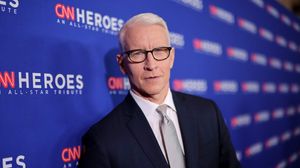

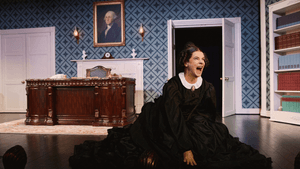






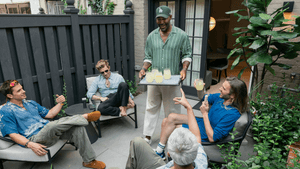

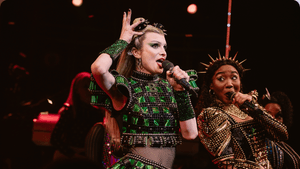




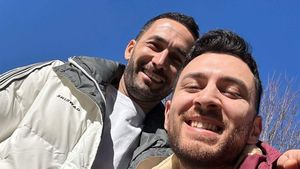
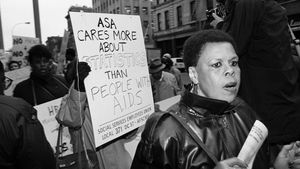










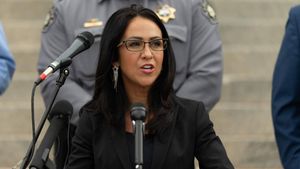


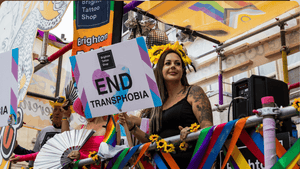
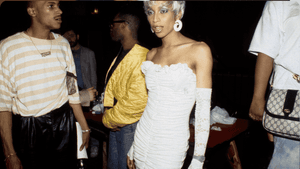
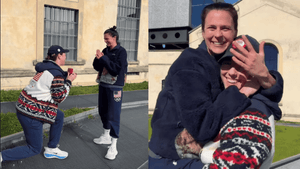



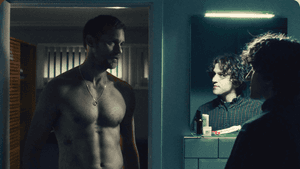
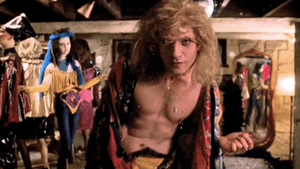


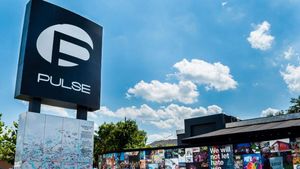
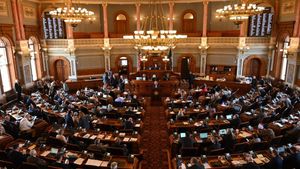
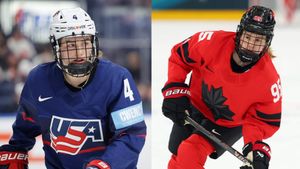
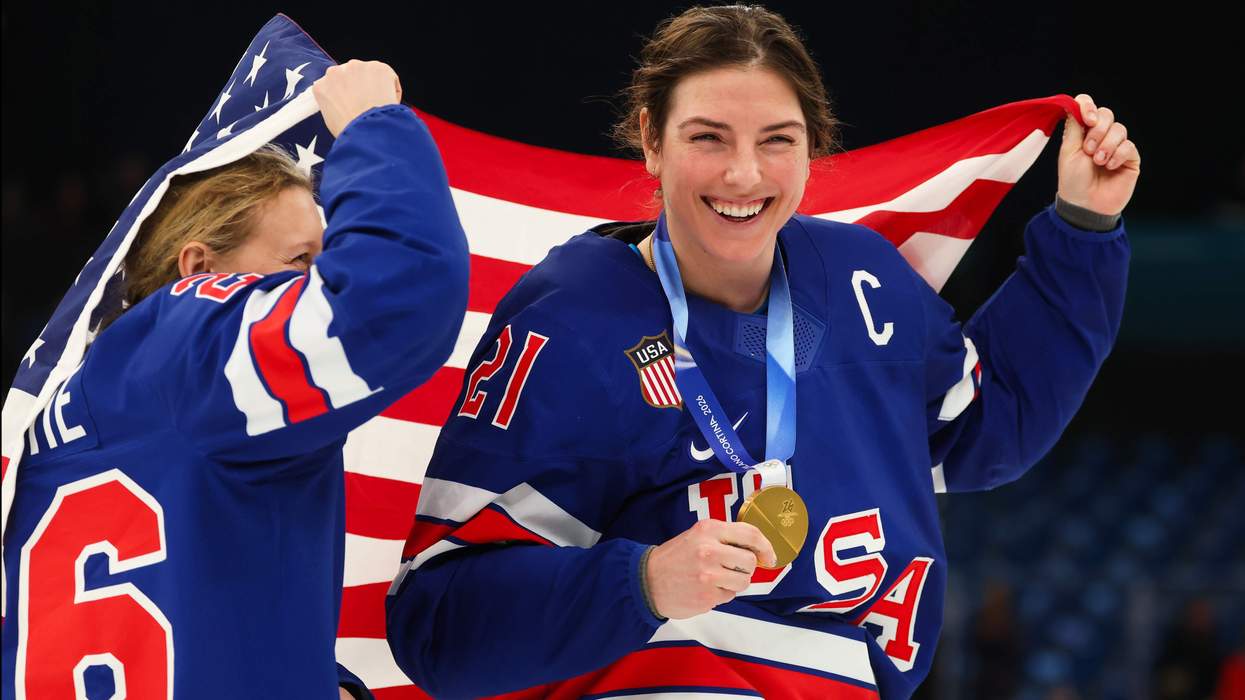
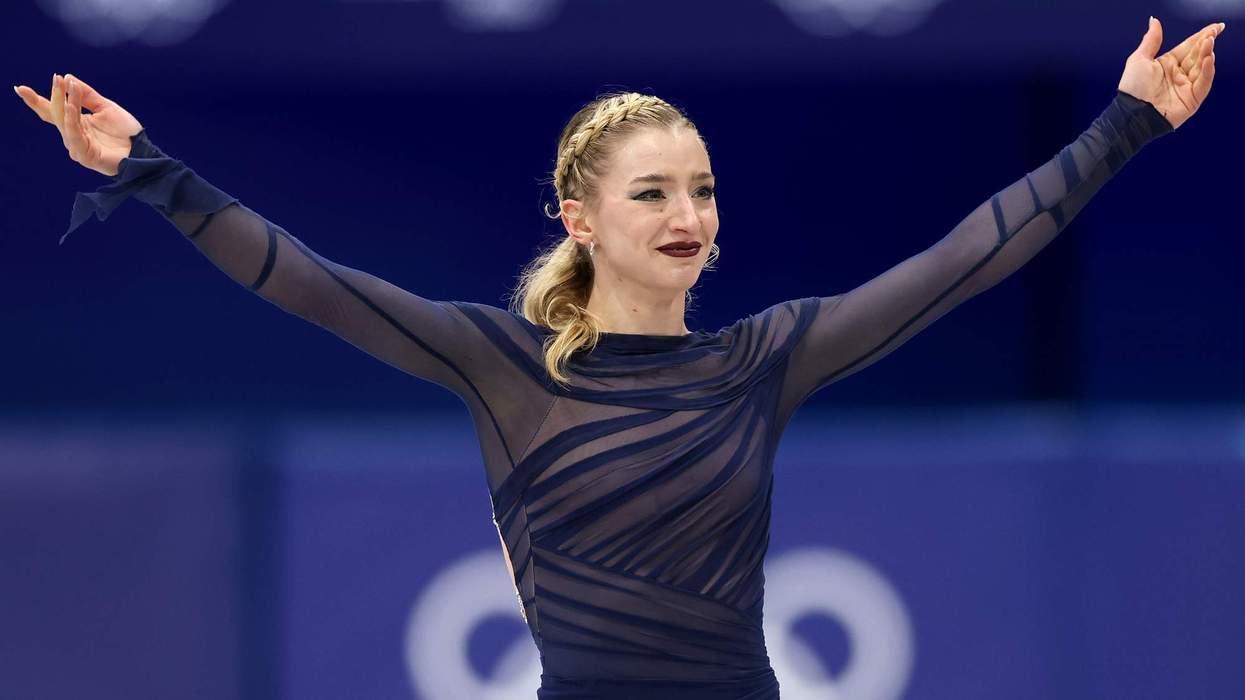
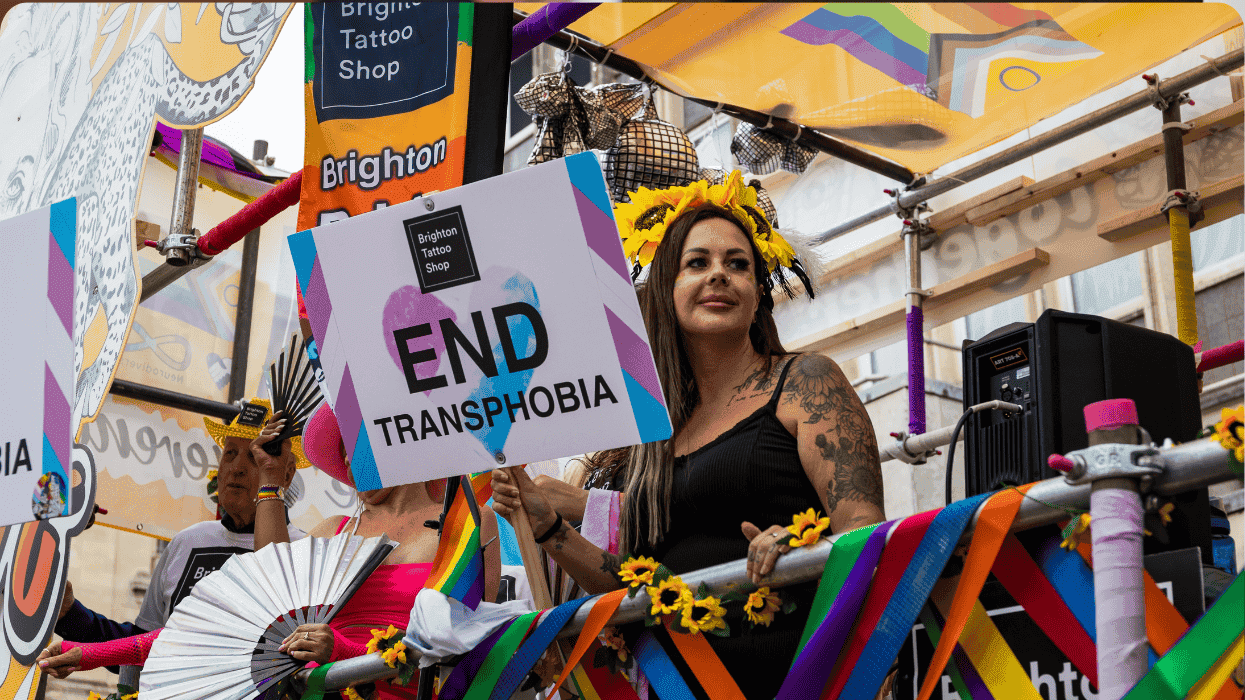



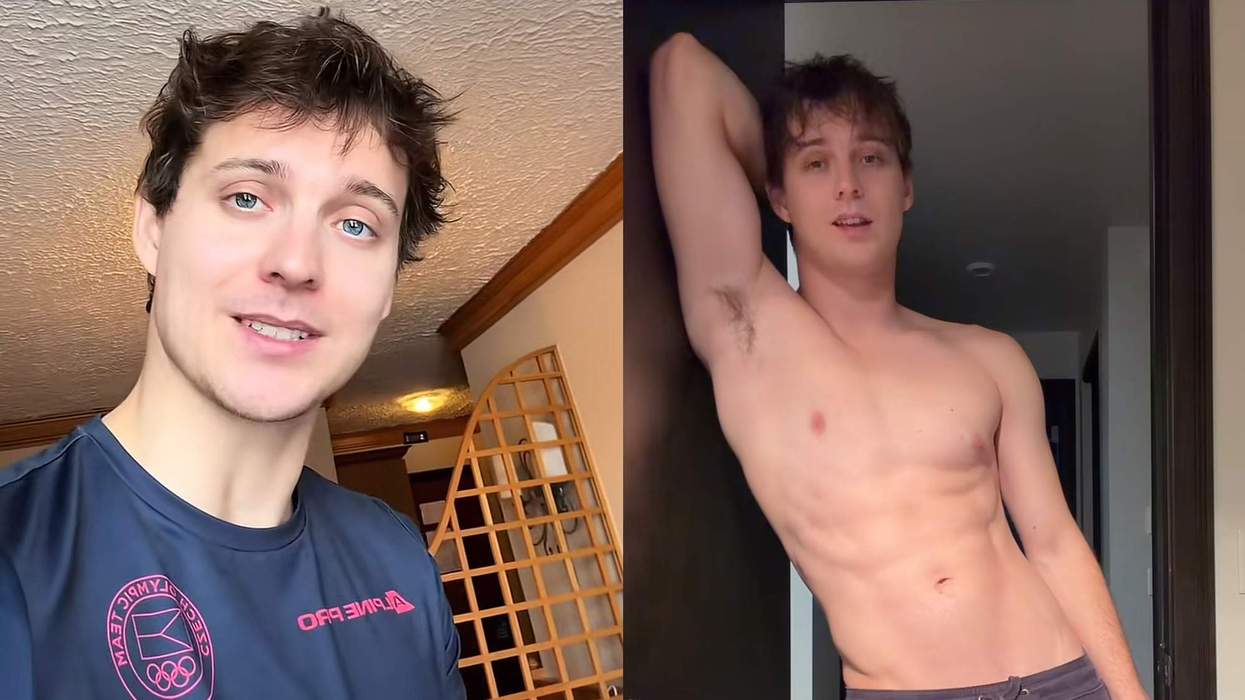
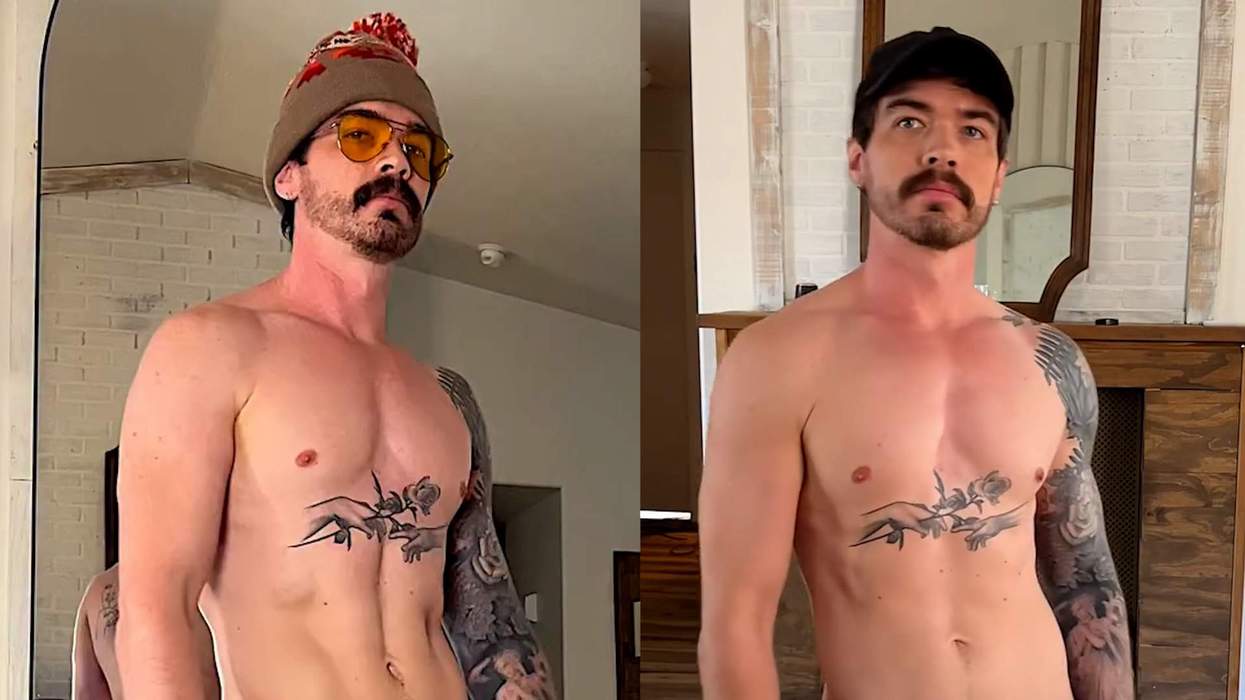
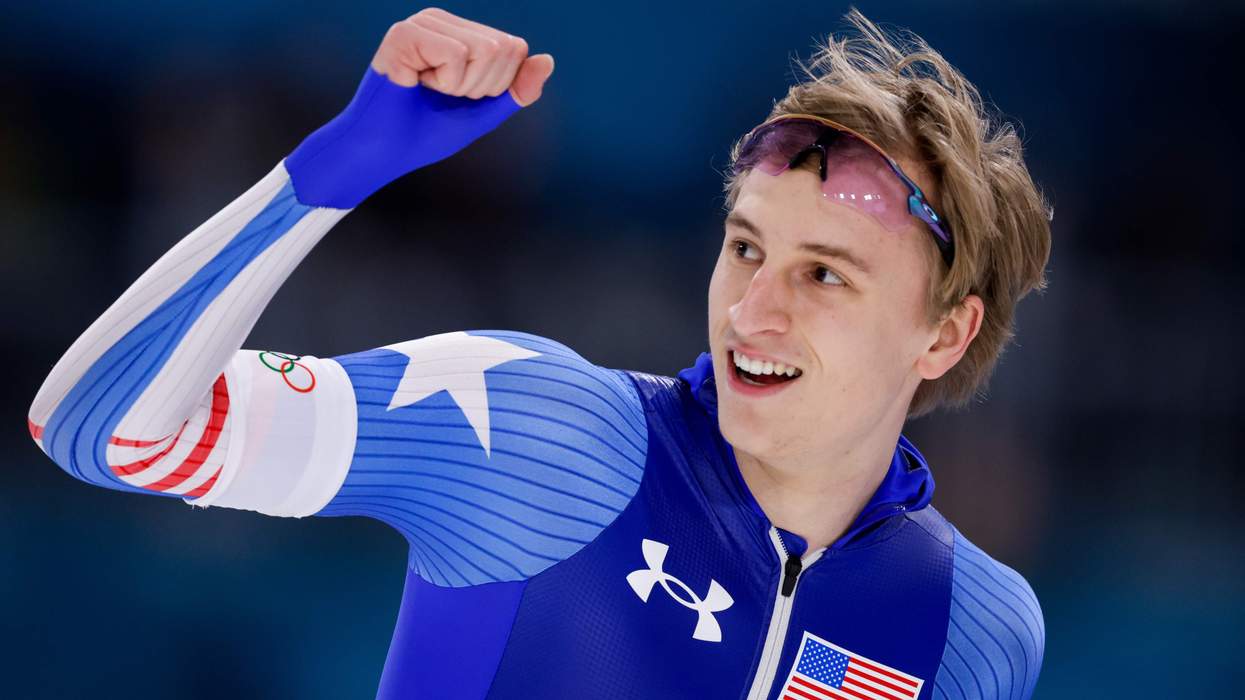
































 Cindy Ord/Getty Images
Cindy Ord/Getty Images























